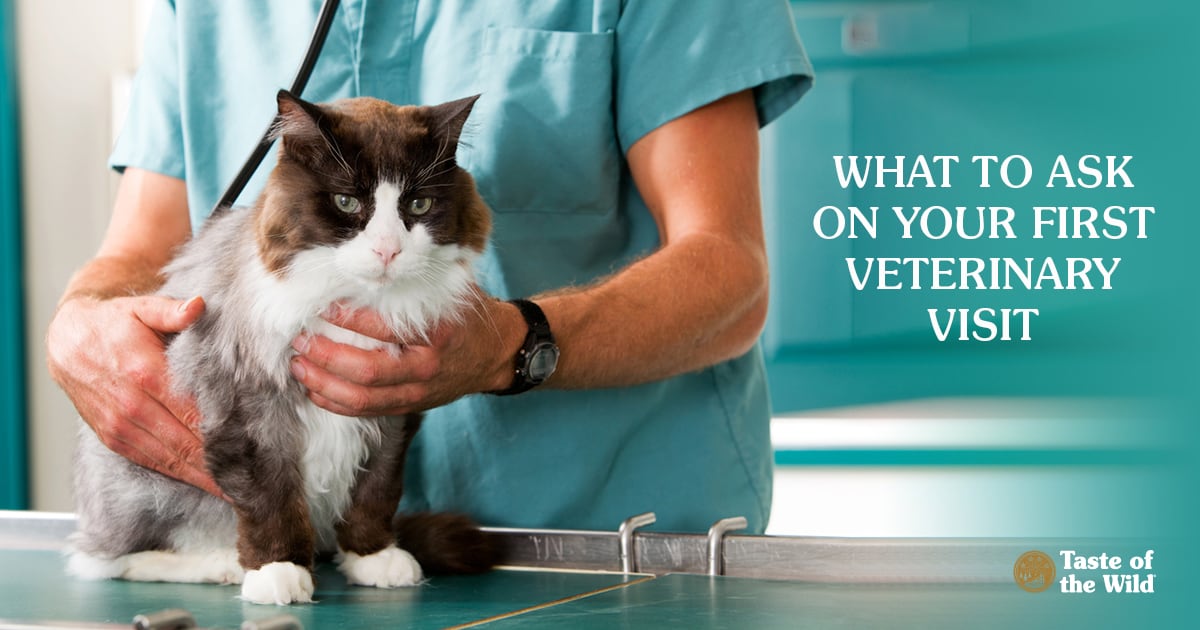
Going to the veterinarian for the first time can be a bit overwhelming, especially when you’re not sure what to expect. Whether this is a routine checkup or looking into symptoms, follow these steps to make sure you have a successful appointment.
Preparing for Your Visit
Preparation before your first visit to the veterinarian can make all the difference. While you may be taking mental notes before your visit, writing down any questions or concerns you may have is a great way to make sure you don’t forget anything.
In these notes, be specific. Write down specific food and treat brands you are feeding your pet, along with the quantities – because telling your veterinarian that you feed your pup a “handful” of dog food doesn’t tell very much!
If this visit goes beyond a routine checkup, write down all symptoms you notice in your pet and any medication your pet may be taking. Takes notes on your pet’s water drinking habits, appetite, energy level, or any behavior that may be unusual.
If you have a pet going to the veterinarian for the first time, contact them ahead of time to determine if you will need to bring in a stool sample for a fecal exam.
What to Ask the Veterinarian
During your first visit to the veterinarian’s office, there are a few questions that you should ask to make sure you’re ready for any scenario that may arise.
What are the office’s capabilities?
Not all offices are able to cater to each and every need a pet owner may have. To make sure there are no surprises in a crisis, ask what capabilities they have. Do they have an in-house laboratory for tests? Can they take x-rays? What surgeries are these veterinarians able to do?
Where can I find emergency care after hours, on weekends or during holidays?
While some offices may offer emergency care after hours, many do not. Ask your veterinarian whether they will be available during non-office hours in case of an emergency, and if not, where you should take your pet.
What parasites and pests are common in this area? And how do I prevent them from harming my pet?
Knowing what parasites and pests are common in your area gives you a head start at prevention. Discuss what steps you can take to keep your pet healthy and pest free.
Should I have pet insurance?
While pet insurance isn’t a must for everyone, it may be helpful for you and your pet. Your veterinarian will be able to provide you with insight on whether or not pet insurance is right for you and your pet.
What type of food should I buy?
Talk with your veterinarian to determine which ingredients are needed to make sure your pet has a healthy diet.
Does my pet need any vaccinations?
Be sure to mention if you ever expect to board your pet, take your dog to a dog park, or let your cat outside – these can affect which prevention treatments your pet needs.
Should I microchip my pet?
Not all pet owners want to place a microchip in their pet, but for those interested, a veterinarian is able to provide you will all the information needed to make a decision. Microchips are about the size of a grain of rice and contain your contact information.
What kind of grooming do you recommend for my pet?
Different breeds require different types of care. Your veterinarian can recommend grooming procedures and professionals for regular care.
Your local veterinarian is an excellent resource for helpful tips and tricks for raising a healthy and happy pet. Don’t be afraid to ask your veterinarian any other lingering questions you may have.
The information in this blog has been developed with our veterinarian and is designed to help educate pet parents. If you have questions or concerns about your pet's health or nutrition, please talk with your veterinarian.
